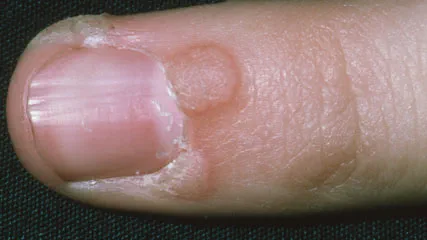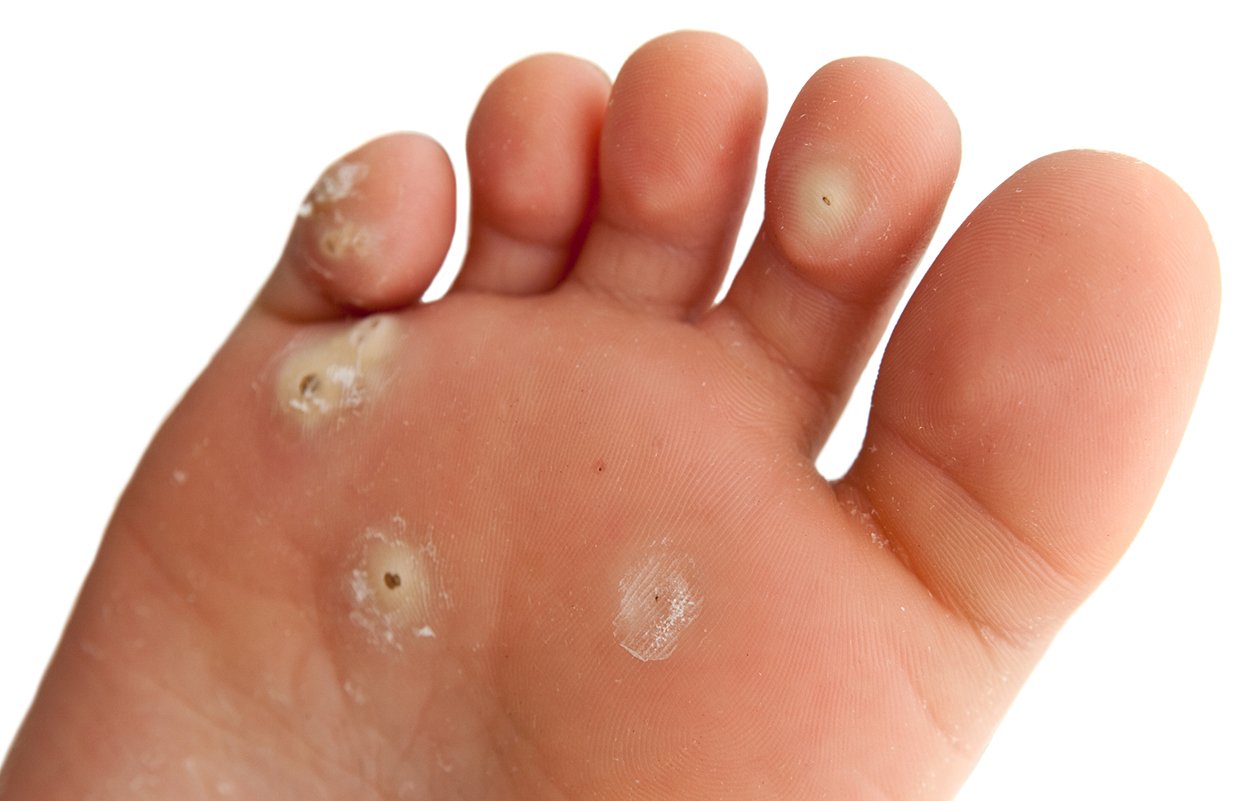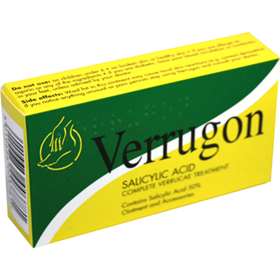When should I see a doctor about a wart or verruca?
What is a wart or verruca?
Warts and verrucas are small, rough lumps or growths on your skin caused by the human papilloma virus (HPV). Many people get one at some point in their lives. They are most common in children and young adults. A wart on the sole of your foot is called a verruca.
 Typical warts
Typical warts
 Typical verrucas
Typical verrucas
They are called verrucas on the feet and look different (flattened and can be painful).
Tell me more about warts and verrucas, their causes, treatment and when to see a doctor.
Can warts and verrucas spread around your body and to other people (i.e. contagious)
Yes. So, if you have one on one hand, it is not surprising you get one on the other. Also if you have them, ideally you should not share towels etc. People that swim a lot are especially prone, as you are in contact with water that other people with verrucas have trodden in. It can take months for a wart or verruca to appear after contact with the virus.
Are warts and verrucas dangerous?
No. Warts do not cause you any harm, but some people find them itchy, painful or embarrassing. Verrucas are more likely to be painful – like standing on a needle. Both usually go away eventually with no treatment.
But you can treat warts if they bother you, keep coming back or are painful. How?
A pharmacist can help with warts and verrucas
You can buy creams, plasters and sprays from pharmacies to treat warts and verrucas. Many are based on salicylic acid.
 This salicylic acid is a good one
This salicylic acid is a good one
These treatments irritate the skin a little – but usually work. It is important to keep using them every day for a long time until the wart or verruca is completely gone. This can take up to 3 months.
You should not use these treatments on your face.
So. When should I see a doctor about a wart or verruca?
You should see a GP if:
- You’re worried about a growth on your skin – i.e. it may not be a wart or verruca (and you think a cancer is a possibility)
- You have a wart or verruca that keeps coming back
- You have a very large or painful wart or verruca
- A wart bleeds or changes in how it looks
- You have a wart(s) on your face or genitals.
GP treatments
Some GPs can freeze a wart or verruca so it falls off a few weeks later. This is called cryotherapy. Check with your GP surgery if they offer the service and the NHS pays it in your area.
When you have cryotherapy, the doctor applies the liquid nitrogen to your wart, using either a spray or a cotton bud. It takes 5-30 seconds to freeze your wart, depending on the technique used, and its size and location. You may need to repeat the treatment every two to three weeks, up to six times.
Other treatments include minor surgery and treatment with laser or light.
Who should be referred to dermatologist (skin specialist)?
If such treatment has not worked, your GP should consider referral you to a dermatologist (skin specialist). Other reasons for referral include:
- Your GP or pharmacist is not sure it is a wart or verruca
- You have warts on your face
- Further tests are needed to confirm your diagnosis
- Large areas of your skin are affected
- Your warts are bothering you, and they haven’t gone away with salicylic acid or freezing (cryotherapy)
- You have lowered immunity because of a medical condition or medicines you are taking.
Genital warts
Genital warts are caused by different types of HPV from the other types of wart. They are a sexually transmitted disease (STD), which means they are spread by sexual contact. Genital warts are treated differently from other types of wart. Don’t use over-the-counter wart treatments on genital warts.
Genital warts should be treated at an NHS sexual health or genitourinary medicine (GUM) clinic. Find your local one online.
Summary
We have described when should I see a doctor about a wart or verruca? We hope you understand them better now.
Last Reviewed on 12 March 2024
